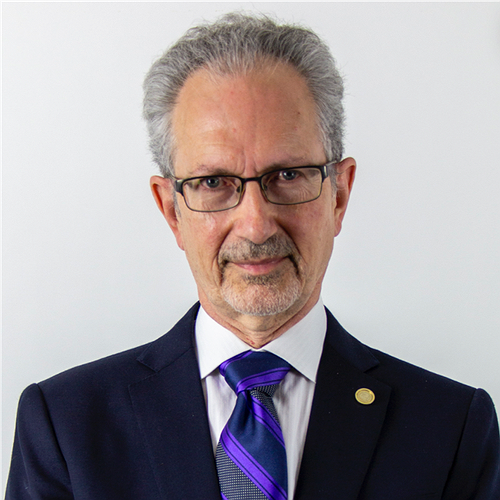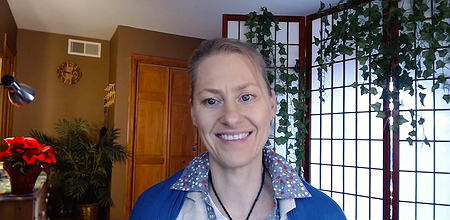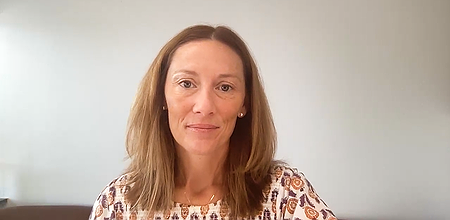- Introduction to the Intrinsic Practice that offers a self-administered online method with audiovisual tools that can be useful to enhance one’s ability to experience wellness
- Instructions on the use of the Intrinsic Practice as a toolkit to enhance during session or in between session clinical work
The Intrinsic Practice: an online toolkit to complement your clinical practice
Prof. Jacques Bradwejn, Psychiatrist
Excerpt: introduction to the intrinsic practice
- 7h30 of continuing education
- 47 lessons that last from 5 to 15 minutes each
- 1 certificate of achievement
- 1 PowerPoint
- 1 bibliography
- 1 course evaluation
- 7-day money back guarantee
- Unlimited access
- 97% of participants who completed the satisfaction survey declare they would recommend this course to a colleague
Overview
The evidence of efficacy of psychotherapies such as cognitive behavior therapy (CBT) has originally been derived from studies based on diagnostically defined entities like depression, panic disorder, social anxiety disorder, etc. Several recent trends have influenced the use of those psychotherapies.
One is from recent evidence suggesting that these psychotherapies may be effectively dispensed throughout diagnostic categories without specific adaptation to any category—in other words, “trans-diagnostically.” This has supported the use of a more general protocolar approach with a variety of tools constituting a “toolkit” within it that may be used according to patients’/clients’ symptoms and their importance at any point in time in their treatment.
Another trend comes from the addition of tools borrowed from various meditative, spiritual, and wellness practices to form a toolkit. Yet another is the appearance of online self-administered psychotherapies designed from conventional or trans-diagnostically modified treatment protocols and a derivative “guided online psychotherapy,” whereby a psychotherapist supports a patient/client on the use the online program.
These trends, taken altogether, offer the opportunity for psychotherapists to enhance their practice using evidence-based psychotherapies, trans-diagnostically, with incorporation of tools borrowed from meditative, spiritual, and wellness practices, and with support of a concordant online toolkit that may be used during or in between sessions as they see fit with their patients/clients.
The Intrinsic Practice may be among such an online toolkit. It is a self-administered online method with audiovisual tools that can be useful to enhance one’s ability to experience wellness. Its tools are derived from evidence-based psychotherapies and, among others, philosophy, spirituality, and wellness practices. All the Intrinsic Practice resources are available for free on an open-access basis for anyone who wishes to use them. Its tools can be used during clinical sessions with patients/clients or recommended for use in between sessions. Preliminary evaluation of visits to the Intrinsic Practice website reveals that 97% of patients/clients return to it after being informed of its availability, 15% return to it 9-25 times, and about 30% will visit it between 26- 200 times. This suggests an attractiveness and/or usefulness for a relatively high number of patients/clients when actively engaged in clinical treatment.
Not only are the Intrinsic Practice resources potentially useful to a psychotherapist’s practice, but it also offers a platform that will invite psychotherapists to network with peers and eventually contribute to its toolkit, on a free open-access basis for anyone to benefit from it.
Visit Dr. Bradwejn’s website to learn more!
Contrary to the rest of our courses, this one is not accredited
About the expert

Dr Jacques Bradwejn trained in medicine at the University of Sherbrooke and in psychiatry at McGill University. He completed a research fellowship in psychopharmacology at McGill University and in neuropsychopharmacology at the University of Montreal. He is a fellow of the Royal College of Physicians and Surgeons of Canada, and a diplomate of the American Board of Psychiatry.
He has served as dean of the Faculty of Medicine at the University of Ottawa from 2006 to 2017, as chair of the Department of Psychiatry at the University of Ottawa, as Psychiatrist-in-Chief at the Royal Ottawa Hospital and as head of Psychiatry of The Ottawa Hospital—positions he held concurrently for more than eight years.
His main research interest has been in the field of anxiety and mood disorders, for which he gained an international reputation. He was the first to hypothesize that the neuropeptide cholecystokinin (CCK) has a role in the etiology of panic attacks in humans. He also carries out research on the integration of biological, psychological, and spiritual approaches in the treatment of anxiety disorders, as well as on approaches used by complementary medicines. He participated in the creation of a provincial association for anxiety disorders (Association Trouble Anxieux Quebec, ATAQ), as well as a national network for anxiety and mood disorders (Canadian Network for Mood and Anxiety Treatments, CANMAT). He has also been a lead for anxiety treatment guidelines for Ontario. He has been active in the public dissemination of information on anxiety disorders and has made more than 400 educational media appearances.
He is a visiting professor at the Shanghai Jiao Tong University School of Medicine and a founding dean of the Ottawa Shanghai Joint School of Medicine at Renji Hospital in Shanghai, which was created jointly by the University of Ottawa and the Shanghai Jiao Tong University and is the first initiative to introduce a Western medical curriculum in China. Most of the time, Dr Bradwejn continues to practice psychiatry and be involved in clinical research and leadership development in Canada and abroad, as well as the development of open-access, free psychological online health programs such as the Intrinsic Practice (intrinsicpractice.com).
Learning objectives
Learning material
This workshop includes theory as well as clinical examples. It includes videos ranging from 5-15 minutes in length. The PowerPoint of the workshop can be downloaded.
Syllabus
- PowerPoint
-
Introduction to the Intrinsic Practice method
- 1. Presentation
- 2. About the Intrinsic Practice
- 3. Use of the Method so far
- 4. What is the Intrinsic Practice
-
Step 1
- 5. Introduction to Step 1
- 6. Strength
- 7. Agreement
- 8. Time
- 9. Resolution
- 10. Thoughtfulness
-
Step 2
- 11. Introduction to Step 2
- 12. Attribute
- 13. Care
- 14. Enjoyment
- 15. Ethics
- 16. Purpose
- 17. Summary of Step 2
-
Step 3
- 18. Introduction to Step 3
- 19. Soma
- 20. Emotion
- 21. Thought
- 22. Doing
- 23. Mechanism (part 1)
- 24. Mechanism (part 2)
- 25. Intrinsicness
- 26. Notion
- 27. Summary of Step 3
-
Step 4
- 28. Introduction to Step 4
- 29. W5
- 30. Organization
- 31. Law
- 32. Duty
- 33. Relationships
- 34. Summary of Step 4
-
Step 5
- 35. Introduction to Step 5
- 36. Summary of Step 5
-
Step 6
- 37. Introduction to Step 6
- 38. Soma
- 39. Emotion
- 40. Thought
- 41. Techniques for Thought
- 42. Doing
- 43. Mechanisms
- 44. Intrinsicness
- 45. Notion
- 46. Intrinsic practice
- 47. Conclusion
- Bibliography
CE Credits
Download a certificate of successful completion.
Audience
This training is intended for mental health professionals.
Registration
Ask a question
Do you have a question? Then email us at contact@asadis.net
Frequently asked questions
-
Is there an evaluation at the end of the course?
To validate the achievement of the learning objectives, a final evaluation in the form of true/false questions is required. It must be completed in order to obtain the certificate of completion.
In addition, an optional self-assessment is offered at the beginning and end of the course, allowing you to measure your progress on the targeted skills.
These evaluations are not graded and are intended primarily to support your professional reflection.
-
I have a disability. Can I receive specific support?
Yes! This training is offered as a pre-recorded video format, without subtitles. If you have a disability, we can provide an adapted alternative (technical assistance for viewing or individual supervision). For any request, please contact our disability coordinator at the following address: contact@asadis.net
-
How long do I have access to the course?
After your registration, the course is accessible anytime and from anywhere with unlimited access.
-
When does the course start?
That is entirely up to you! When you buy a course, you'll receive an access link that you can activate when you want.
-
Is there a student rate?
Yes there is! To learn more, email us at contact@asadis.net.
You may also be interested in:
Legal notice
The courses offered by ASADIS are accredited by different professional organisations. In addition, ASADIS is approved by the Canadian Psychological Association to offer continuing education for psychologists. ASADIS maintains responsibility for the program.
The CPA’s approval of an individual, group, or organization as a CE Sponsor or Provider is restricted to the activities described in the approved application or annual report form. The CPA’s approval does not extend to any other CE activity the Sponsor or Provider might offer. In granting its approval, the CPA assumes no legal or financial obligations to Sponsors, Providers, or to those individuals who might participate in a Sponsor or Provider’s CE activities or programs. Further, responsibility for the content, provision, and delivery of any CE activity approved by the CPA remains that of the CE Sponsor or Provider. The CPA disclaims all legal liability associated with the content, provision, and delivery of the approved CE activity.


